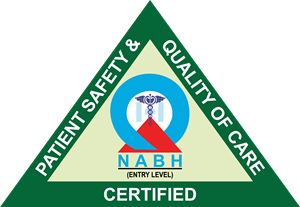Offers a wide range of medical services under one roof, with comprehensive and convenient healthcare
Jinkushal Cardiac Care & Superspeciality hospital
9082386200
Call for appointment
9082386200
Call for appointment
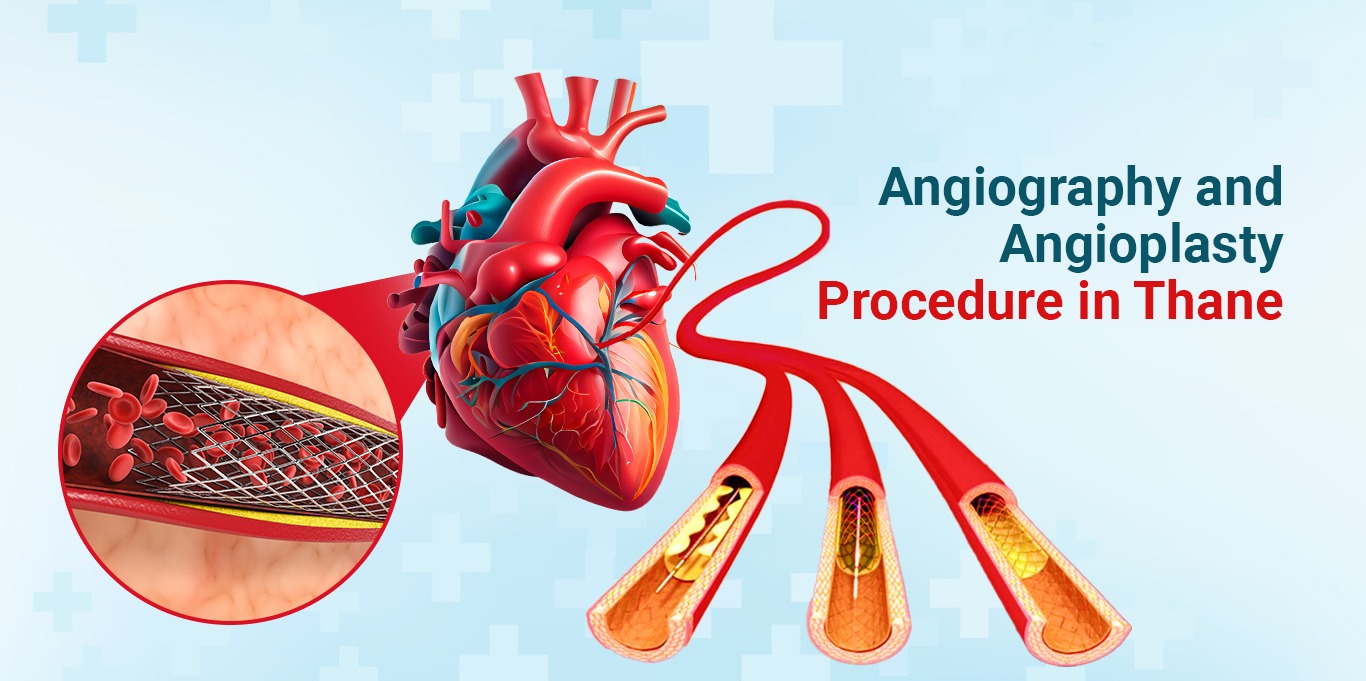

Jinkushal Hospital: Your Ultimate Guide to Angiography and Angioplasty in Thane
Welcome to Jinkushal Hospital, the best hospital for Angioplasty and Angiography in Thane. Whether you’re considering a coronary angiography test, MR Angiography, or CT angiography for the heart, we provide comprehensive details on these procedures. Let’s dive deep into the world of heart health.

Superspeciality Hospital in Thane
Jinkushal Cardiac Care
Jinkushal Cardiac Care and Superspecialty Hospital is a full-fledged multi-specialty hospital with 30 beds out of which 7beds are dedicated for ICU. It is state of art infrastructure equipped with all high end machines and instruments. The hospital has a CATHLAB which is one of its kind and has inbuilt CT scan and AI which makes it best for treating emergency cases of acute paralysis and heart attack, it also has two Major OTs and a Supramajor OT for cardiac cases.
- 24*7 Emergency Care
- 24*7 Acute Paralysis Unit
- 24*7 Trauma Care
- 24*7 Pathology
- X-Ray
- 24*7 Cardiac Care
- Dialysis With ICU Backup
- 24*7 Pharmacy
- 24*7 Cardiac Ambulance
- 24*7 Acute Heart Attack Unit/Emergency Angioplasty
Google Review
 laxman jangid2024-07-13Jinkushal Hospital is best Cardiac care hospital with its team of exceptional doctors, compassionate nursing staff, and unwavering commitment to hygiene, it consistently delivers comprehensive and patient-centered care. Whether it's routine checkups, complex surgeries, Jinkushal Hospital is undoubtedly one of the best hospitals for all your healthcare needs.
laxman jangid2024-07-13Jinkushal Hospital is best Cardiac care hospital with its team of exceptional doctors, compassionate nursing staff, and unwavering commitment to hygiene, it consistently delivers comprehensive and patient-centered care. Whether it's routine checkups, complex surgeries, Jinkushal Hospital is undoubtedly one of the best hospitals for all your healthcare needs. Sachin Mukadam2024-07-11Very nice hospital. Very clean. Best doctors in town are available. Good staff and very helping nature of all staff and doctors is worth mentioning. Got my relatives knee replacement here. Very good results. Highly recommended for any medical treatment and all surgeries.
Sachin Mukadam2024-07-11Very nice hospital. Very clean. Best doctors in town are available. Good staff and very helping nature of all staff and doctors is worth mentioning. Got my relatives knee replacement here. Very good results. Highly recommended for any medical treatment and all surgeries. Jitendra Khandelwal2024-07-08My self jitendra khandelwal I have done my by pass surgery (CABG) on 26th June at jinkushal hospital . It was very well done hospital is very fantastic with all latest technology and above all Dr.mayur Jain sir is very positive and fantastic person who motivated and felt me it's normal surgery and not so which I thought it's very big surgery . So I suggest any one at least on ghodbunder road thane should visit if your facing any heart issue . I am very much satisfied with my pre and post surgery . Thanks sir
Jitendra Khandelwal2024-07-08My self jitendra khandelwal I have done my by pass surgery (CABG) on 26th June at jinkushal hospital . It was very well done hospital is very fantastic with all latest technology and above all Dr.mayur Jain sir is very positive and fantastic person who motivated and felt me it's normal surgery and not so which I thought it's very big surgery . So I suggest any one at least on ghodbunder road thane should visit if your facing any heart issue . I am very much satisfied with my pre and post surgery . Thanks sir Navneet Jain2024-07-07I would like to extend my heartfelt gratitude to Dr. Mayur Jain and his exceptional team at Jinkushal Hospital in Thane, Maharashtra. As a cardiac specialist, Dr. Jain's expertise and dedication to his patients are truly commendable. From the moment you step into Jinkushal Hospital, you are met with a team of professionals who are not only highly skilled but also deeply compassionate. Dr. Jain and his core team consistently provide outstanding care, ensuring that each patient receives the best possible treatment. Additionally, the administrative team at Jinkushal Hospital deserves recognition for their efficiency and support, making the entire experience smooth and stress-free. I have immense respect for Dr. Mayur Jain and his team, and I am grateful for their continued commitment to excellence.
Navneet Jain2024-07-07I would like to extend my heartfelt gratitude to Dr. Mayur Jain and his exceptional team at Jinkushal Hospital in Thane, Maharashtra. As a cardiac specialist, Dr. Jain's expertise and dedication to his patients are truly commendable. From the moment you step into Jinkushal Hospital, you are met with a team of professionals who are not only highly skilled but also deeply compassionate. Dr. Jain and his core team consistently provide outstanding care, ensuring that each patient receives the best possible treatment. Additionally, the administrative team at Jinkushal Hospital deserves recognition for their efficiency and support, making the entire experience smooth and stress-free. I have immense respect for Dr. Mayur Jain and his team, and I am grateful for their continued commitment to excellence. Saurabh Kumar2024-06-29Best cardiac care hospital in Thane
Saurabh Kumar2024-06-29Best cardiac care hospital in Thane Rupesh Baviskar2024-06-19Very helpful and good staff I am so happy nice treatment….
Rupesh Baviskar2024-06-19Very helpful and good staff I am so happy nice treatment…. H.R.K group2024-06-18All the services r good,staff sport also good
H.R.K group2024-06-18All the services r good,staff sport also good Vinod Abhale2024-06-17Very good attention & treatment received from Dr Mayur Jain, CardiologistGoogle rating score: 4.9 of 5, based on 248 reviews
Vinod Abhale2024-06-17Very good attention & treatment received from Dr Mayur Jain, CardiologistGoogle rating score: 4.9 of 5, based on 248 reviews
Difference between Angiography and Angioplasty
Angiography
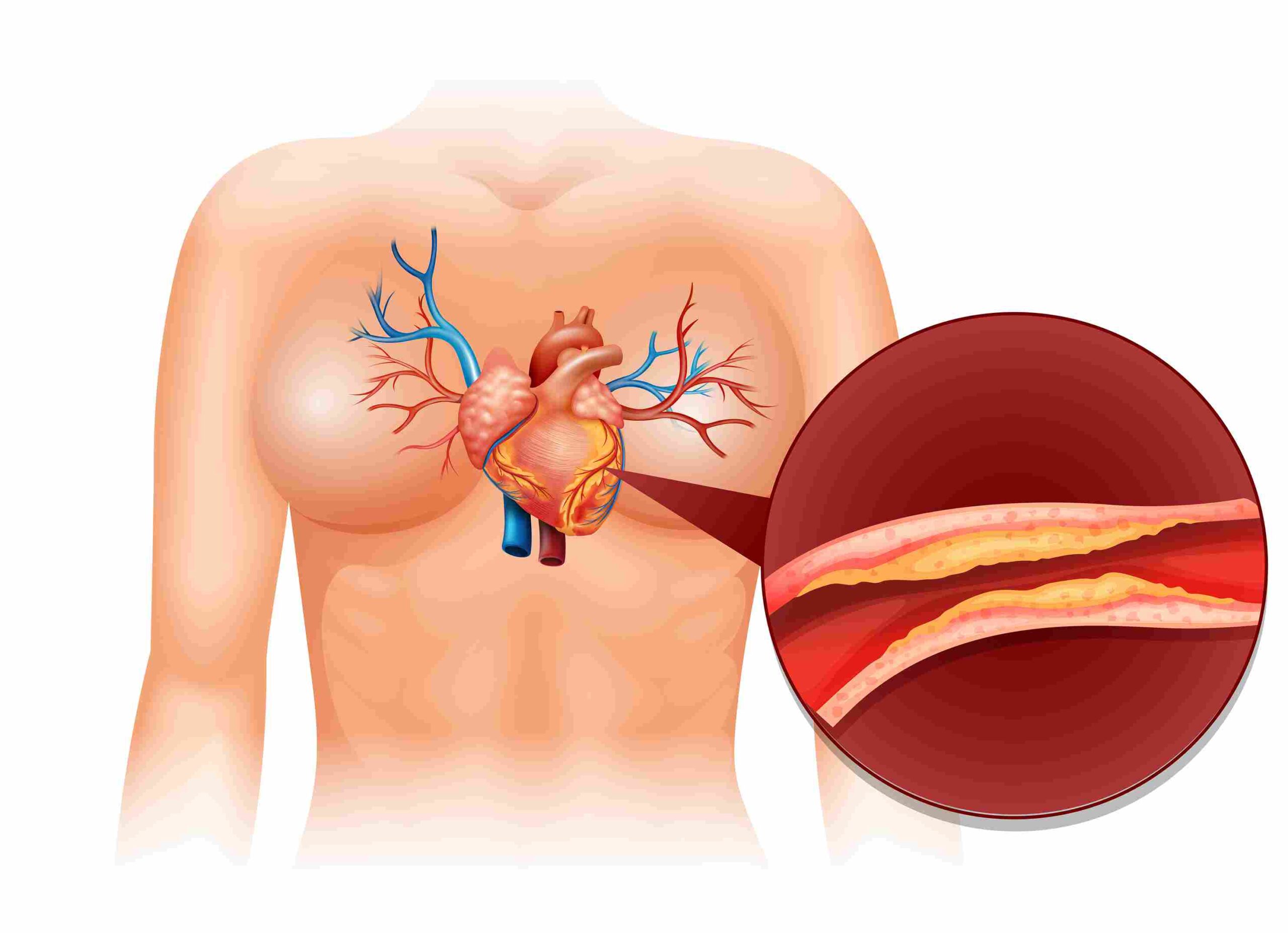
Purpose: Diagnostic procedure used to visualize the inside of blood vessels, especially to identify blockages or narrowing.
Procedure: Involves injecting a radiopaque contrast agent into the blood vessels and capturing images using X-rays, MRI, or CT scans.
Outcome: Provides detailed images of the blood vessels, helping doctors diagnose vascular conditions.
Angioplasty
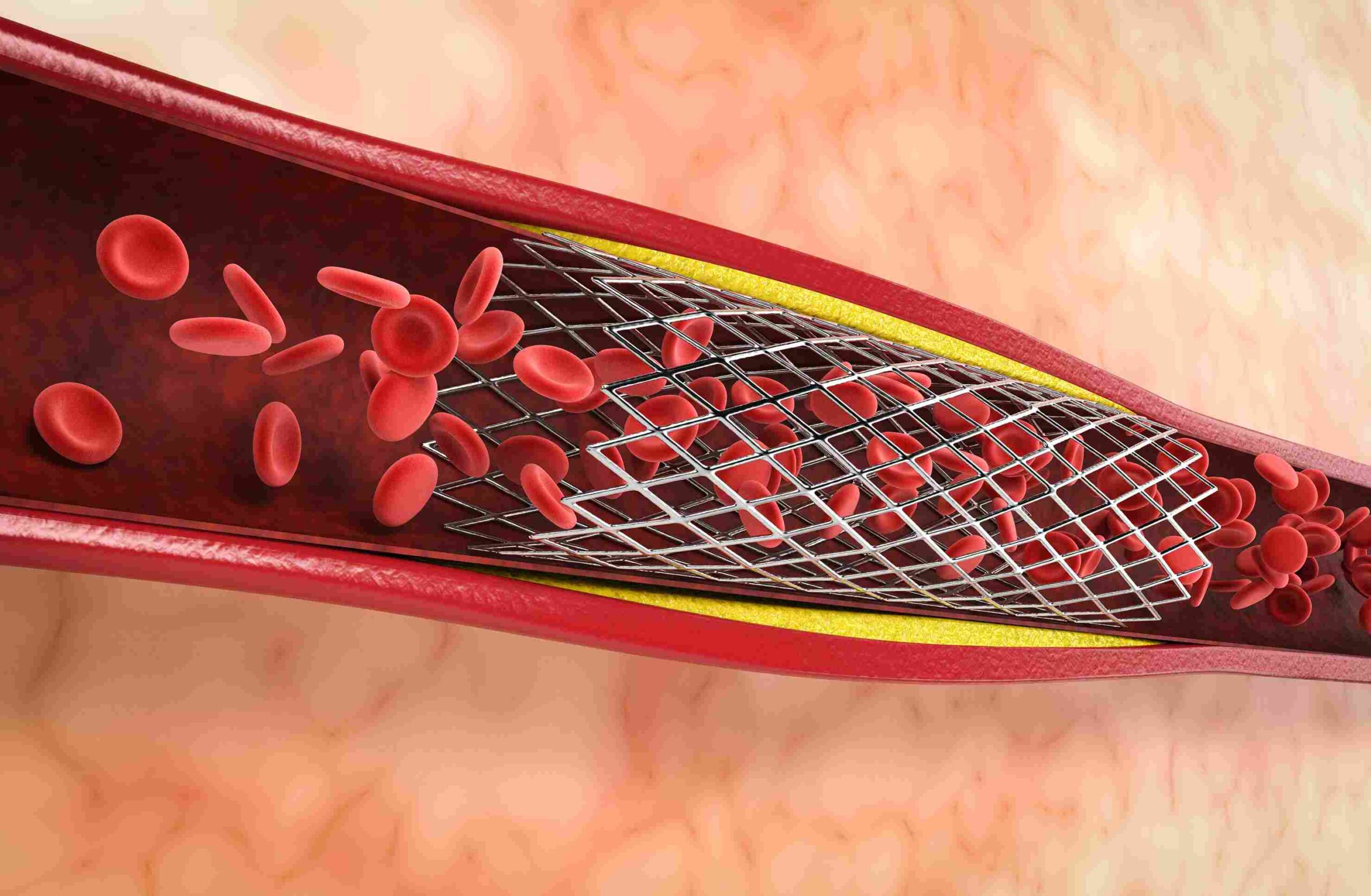
Purpose: Therapeutic procedure aimed at treating narrowed or blocked blood vessels, primarily in the coronary arteries.
Procedure: Involves guiding a catheter with a small balloon attached to the narrowed or blocked area of the artery. The balloon is then inflated to open the vessel. Often, a stent (a small wire mesh tube) is placed to keep the artery open.
Outcome: Relieves symptoms of reduced blood flow, such as chest pain, and improves blood flow to the affected area.
Angiography
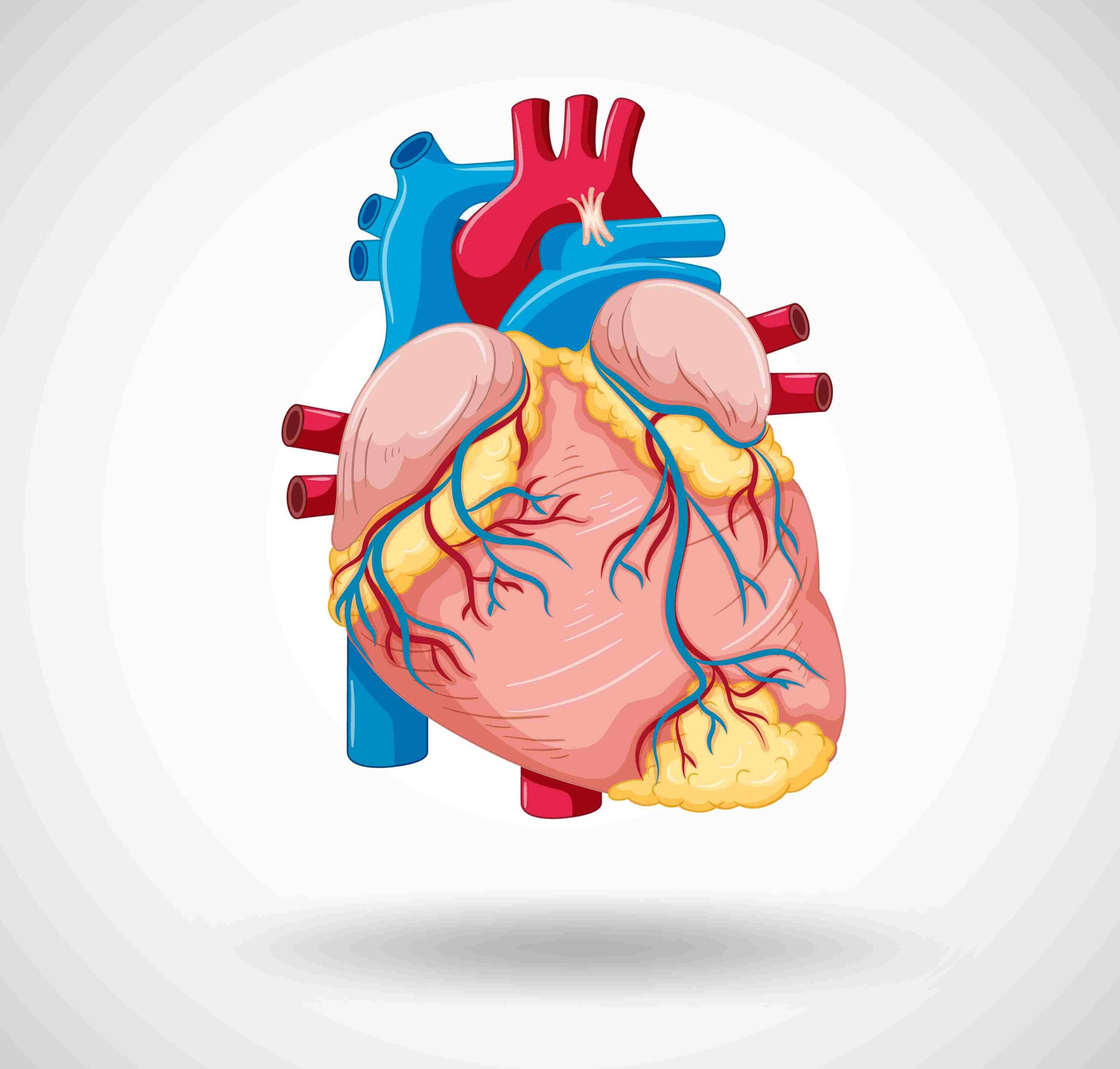
What is an Angiography?
Angiography is a diagnostic medical imaging technique used to visualize the inside, or lumen, of blood vessels and organs of the body. It provides crucial information about the condition and integrity of blood vessels, especially those supplying the heart.
Types
- Coronary Angiography: Specifically examines the arteries of the heart. This is vital for diagnosing coronary artery disease.
- Cerebral Angiography: Targets the blood vessels of the brain, useful for detecting aneurysms or arteriovenous malformations.
- Pulmonary Angiography: Focuses on the vessels supplying the lungs, mainly to check for pulmonary embolisms.
- Renal Angiography: Examines the arteries supplying the kidneys, often to check for stenosis or blockages.
- MR Angiography (MRA): A type of MRI that provides pictures of blood vessels inside the body, without using catheters or the need for recovery time.
- CT Angiography (CTA): Uses CT scanning to gather images of blood vessels. It’s less invasive than standard angiography.
Why is an Angiography done?
Angiography is performed to visualize and assess the condition of blood vessels, especially to-
- Identify blockages or narrowing within the vessels.
- Diagnose vascular diseases like aneurysms or malformations.
- Evaluate the severity of coronary artery disease.
- Determine the need for further treatments, such as angioplasty or bypass surgery.
- Guide interventions, ensuring accurate treatment.
Who performs an Angiography?
A specialized doctor called a radiologist or a cardiologist, depending on the body area being examined, performs the angiography.
How does an Angiography test work?
Angiography is a diagnostic procedure that allows cardiologists to visualize blood vessels. Here’s a brief overview-
- Access: A thin tube called a catheter is inserted into a blood vessel, typically through a small incision in the groin or arm.
- Contrast Agent: A special dye is injected into the bloodstream through the catheter.
- Imaging: As the dye moves through the blood vessels, it becomes visible on X-ray, CT, or MRI images, depending on the type of angiography being performed.
- Visualization: The contrast agent highlights the blood vessels, allowing the cardiologist to see blockages, abnormalities, or malformations on the monitor.
- Analysis: The resulting images give the cardiologist detailed insights into the state of the blood vessels, facilitating diagnosis and guiding treatment decisions.
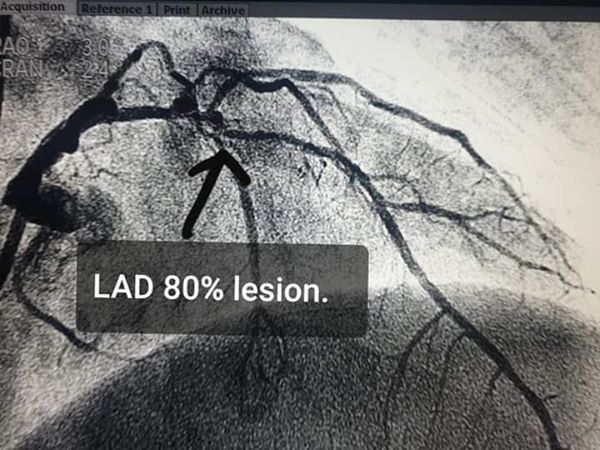

What should I expect on the date of my Angiography?
- Arrival: Arrive at the hospital/clinic; you might be asked to wear a hospital gown.
- Preparation: Fasting for a few hours before the procedure.
- Consent: Discussion about the procedure, risks, and signing a consent form.
- Procedure: You’ll lie on an X-ray table. A local anesthetic will be applied. A catheter is inserted into a blood vessel, often in the groin or wrist, and contrast dye is injected.
- Imaging: X-ray images are taken as the dye flows through your blood vessels.
- Duration: The procedure typically lasts 30 minutes to an hour.
- Post-Procedure: Short recovery period under observation. You might be advised to drink fluids to help flush out the contrast dye.
What should I expect after an angiogram test?
After your angiography, you can expect the following-
- Monitoring: Short period of monitoring for any adverse reactions to the contrast agent or complications from the procedure.
- Rest: You may need to lie flat for several hours to prevent bleeding from the catheter insertion site.
- Discharge Instructions: You’ll receive guidelines on how to care for the catheter insertion site and signs of potential complications to watch for.
- Follow-up: A scheduled follow-up appointment with your cardiologist to discuss the results of the angiography.
- Results: The cardiologist will review the angiography images to determine if further treatment is necessary.
What are the risks of an Angiography?
The risks associated with angiography are generally low, but some complications may include –
- Allergic Reaction: Some patients may have an allergic reaction to the contrast dye used.
- Bleeding: The site where the catheter is inserted may bleed or become bruised.
- Infection: Although rare, the catheter site may become infected.
- Arterial Damage: The catheter could potentially damage an artery, which might lead to further complications.
- Kidney Damage: The contrast dye can sometimes cause kidney damage, particularly in patients with pre-existing kidney issues.
- Radiation Exposure: As with any procedure involving X-rays, there is a slight exposure to radiation.
- Vascular Complications: There’s a small risk of developing blood clots or disrupting plaque in the vessels, which could lead to a stroke or heart attack.
Patients are closely monitored during and after the procedure to manage any immediate complications.
Recovery from Angiography
Post-angiography, patients typically recover quickly. The key points include –
- Rest: Patients may need to rest for several hours post-procedure, especially to allow the effects of sedation to wear off.
- Observation: Medical staff will monitor vital signs and the catheter insertion site for bleeding or swelling.
- Hydration: Patients are often encouraged to drink water to help flush the contrast dye from their bodies.
- Instructions: Before discharge, patients receive instructions on caring for the catheter insertion site and recognizing signs of complications.
- Activity: Patients can usually resume normal activities within a day, avoiding strenuous exercise for a short period as advised by the doctor.
- Follow-up: A follow-up appointment is usually scheduled to discuss the results of the angiography.
Most patients leave the hospital the same day, provided there are no complications. Recovery time at home is typically short, with many returning to their usual routine within 24 hours.
Angioplasty
What is Angioplasty?
Angioplasty is a medical procedure used to open up blocked or narrowed blood vessels, primarily the coronary arteries that supply blood to the heart. The objective is to restore adequate blood flow through the vessel.
Types
- Balloon Angioplasty: Involves inflating a tiny balloon inside the artery to push aside blockages and restore blood flow.
- Stent Placement (Coronary Angioplasty): After balloon angioplasty, a mesh-like tube called a stent is placed to keep the artery open.
- Drug-eluting Stent: A stent that releases medication to prevent the artery from narrowing again.
- Atherectomy: A catheter with a sharp blade on the end is used to remove plaque from a blood vessel.
Who needs to have Angioplasty ?
Angioplasty is recommended for individuals –
- With significant blockage in the coronary arteries causing chest pain (angina).
- Who have suffered a heart attack.
- With narrowed arteries, leading to reduced blood flow to the heart.
- Whose symptoms cannot be managed with medications or lifestyle changes alone.
- At high risk of a heart attack due to the location or nature of the blockage.
What does Angioplasty treat?
Angioplasty treats blocked or narrowed blood vessels, especially in the coronary arteries, to restore adequate blood flow and reduce the risk of heart attacks. This procedure is commonly used to address conditions like coronary artery disease caused by the buildup of plaque in the arteries.
How common is Angioplasty?
Angioplasty is a common procedure and has been a primary treatment for CAD for decades.
What happens before Angioplasty?
- Medical Review: The patient’s medical history is examined.
- Physical Examination: A thorough check-up is conducted to assess the patient’s health.
- Tests: Blood tests and other diagnostic tests may be carried out.
- Fasting: The patient might be asked to fast for several hours.
- Medication Review: Current medications are reviewed, and some might be paused or adjusted.
- Consent: The risks and benefits are discussed, and the patient signs an informed consent form.
- Preparation: The area where the catheter will be inserted (usually the groin or wrist) is cleaned and shaved if necessary.

What happens during Angioplasty?
- A patient is typically given a local anesthetic.
- A small incision is made, usually in the groin or wrist.
- A thin flexible tube called a catheter is inserted into the artery.
- The catheter is guided to the narrowed or blocked coronary artery using X-ray imaging.
- A small balloon attached to the catheter is then inflated to widen the artery.
- Often, a stent (a small wire mesh) is placed in the artery to keep it open.
- Once the procedure is successful, the balloon is deflated and removed along with the catheter.
The entire process aims to restore normal blood flow to the heart.

What happens after Angioplasty?
- The patient is moved to a recovery room for monitoring.
- Vital signs, such as blood pressure and heart rate, are closely observed.
- The entry site of the catheter is checked for bleeding or swelling.
- Patients may need to lie flat for several hours to prevent bleeding.
- Mild discomfort or chest pain might be experienced but should be reported to medical staff.
- Most patients are discharged within 24 hours.
- It’s essential to follow the doctor’s advice on medication, wound care, and physical activity.
- A follow-up appointment will be scheduled to ensure the artery remains open and healing is on track.
What are the advantages of Angioplasty?
- Minimally Invasive: Unlike open-heart surgery, angioplasty is less invasive, involving only a small incision.
- Quick Recovery: Patients typically have a shorter hospital stay and can return to their daily activities faster than with surgical interventions.
- Immediate Relief: It provides immediate relief from symptoms like chest pain and shortness of breath.
- Reduced Risk of Heart Attack: By restoring blood flow, angioplasty can reduce the risk of a heart attack.
- Preservation of Heart Muscle: By re-establishing blood flow quickly, it can prevent or limit damage to the heart muscle.
- Flexible: Stents used during angioplasty can be drug-eluting (slowly releasing medication) to prevent the artery from narrowing again.
What are the risks or complications of Angioplasty?
- Bleeding: At the catheter insertion site, there may be bleeding or hematoma formation.
- Blood Clots: Formation of clots in the stent can block the artery.
- Re-narrowing of the Artery: Despite the procedure’s success, the artery can re-narrow, a condition called restenosis.
- Coronary Artery Damage: The artery may get torn or ruptured during the procedure.
- Kidney Damage: The contrast dye used might cause kidney problems, especially in patients with pre-existing conditions.
- Heart Attack: Rarely, the procedure might trigger a heart attack.
- Stroke: Although uncommon, a stroke can occur if plaque breaks off during the procedure.
- Abnormal Heart Rhythms: The heart can develop irregular rhythms or arrhythmias post-procedure.
- Allergic Reaction: Some people might be allergic to the contrast dye or medications used during angioplasty.
What is the recovery time after Angioplasty?
The recovery time after angioplasty is relatively quick. Most patients are discharged from the hospital within 24 hours. However, complete recovery and resumption of normal activities may take several days to a week. It’s crucial to follow the doctor’s advice and attend follow-up appointments to ensure optimal healing.
Cost of Angiography and Angioplasty in Thane
The angiography cost in Thane and angioplasty cost in Thane can vary based on the procedure and individual needs. Please contact our team for detailed pricing on angiography test cost in Thane and other related services.
Understanding the difference between angioplasty and angiography is essential for heart health. If you’re seeking the best CT Angiography in Thane or the best hospital for Angioplasty in Thane, look no further than Jinkushal Hospital. We pride ourselves on offering top-notch care for our patients. Book an appointment today and prioritize your heart health.
Discover Comprehensive Cardiac Care in Thane at Jinkushal Hospital
At the forefront of cardiovascular health, Jinkushal Hospital stands as a beacon for those seeking the very best in heart care. Our commitment to excellence is embodied in our array of specialized treatments, such as TAVI, and our recognition as one of the Best Heart Hospitals in thane . At the heart of our mission is Dr. Mayur Jain, a renowned Interventional Cardiologist In Thane, whose expertise and dedication have helped countless patients reclaim their health. Learn more about our esteemed cardiology team and discover why we are a trusted name in heart health.
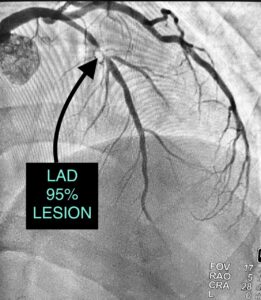
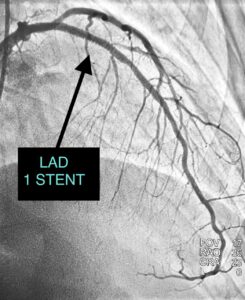
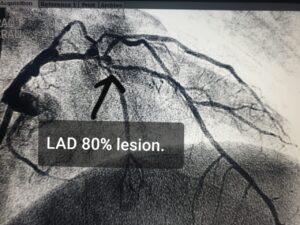
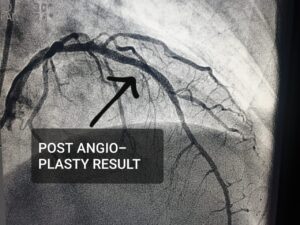
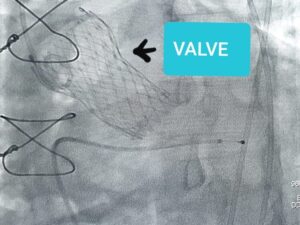
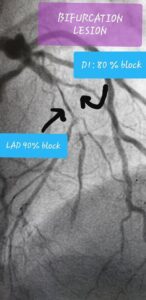
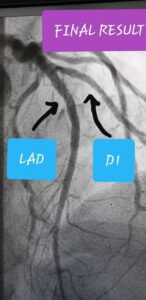

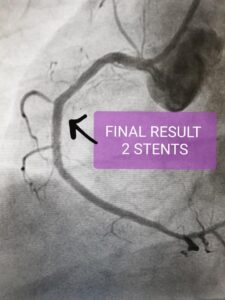
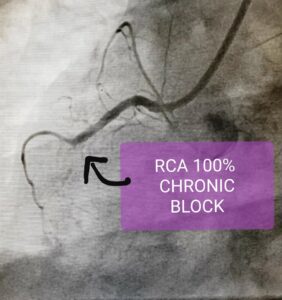
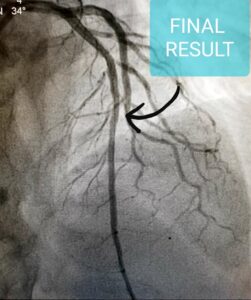
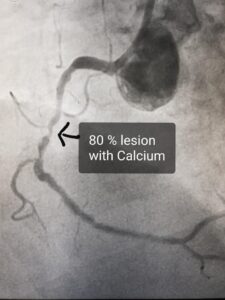
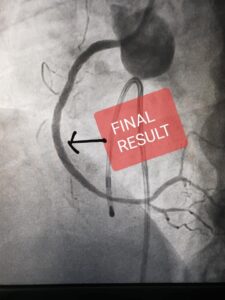
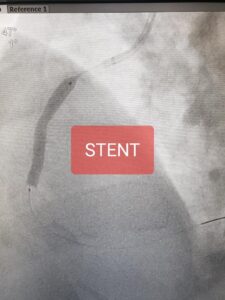
FAQs
Angiography is a diagnostic procedure used to visualize the inside of blood vessels, primarily to detect obstructions or abnormalities. Angioplasty, on the other hand, is a therapeutic procedure aimed at rectifying these blockages by widening the narrowed or obstructed blood vessels.
A typical angiography procedure at Jinkushal Hospital lasts between 30 minutes to an hour, depending on the complexity and the area being examined.
No, angioplasty is a minimally invasive procedure. It does not involve large surgical incisions; instead, a small puncture is made to insert a catheter.
Most patients are discharged within 24 hours after angioplasty. However, the exact duration can vary based on individual recovery and any complications.
Some patients might experience a warm sensation or a metallic taste during the injection of the dye. Rarely, patients might be allergic to the contrast dye. It’s crucial to inform the medical team if you have any known allergies.
Most patients can return to their regular activities within a week. However, strenuous activities and heavy lifting should be avoided for at least a month.
The costs can vary based on the specifics of the procedure and the patient’s individual needs. Please contact our billing department for the most accurate and up-to-date pricing.
Patients are usually advised to fast for 6-8 hours before the procedure. However, specific instructions will be provided based on your appointment time and other factors.
Both procedures are typically performed under local anesthesia, meaning you’ll be awake but the area being worked on will be numb. Sedation can be given if needed to keep you relaxed.
If a blockage is detected during angiography, angioplasty can sometimes be done immediately afterwards. However, in some cases, it might be scheduled for a later date.
You can contact our front desk or visit our website for online appointment bookings.
Treatment options vary based on individual conditions. In some cases, medications or bypass surgery might be recommended. Discuss with our cardiologists for personalized advice.
Stents are commonly used during angioplasty to help keep the artery open. The decision to use a stent is based on the size and location of the blockage.
Most modern stents are MRI-safe. However, always inform your radiologist and provide details about your stent before undergoing any MRI procedures.

